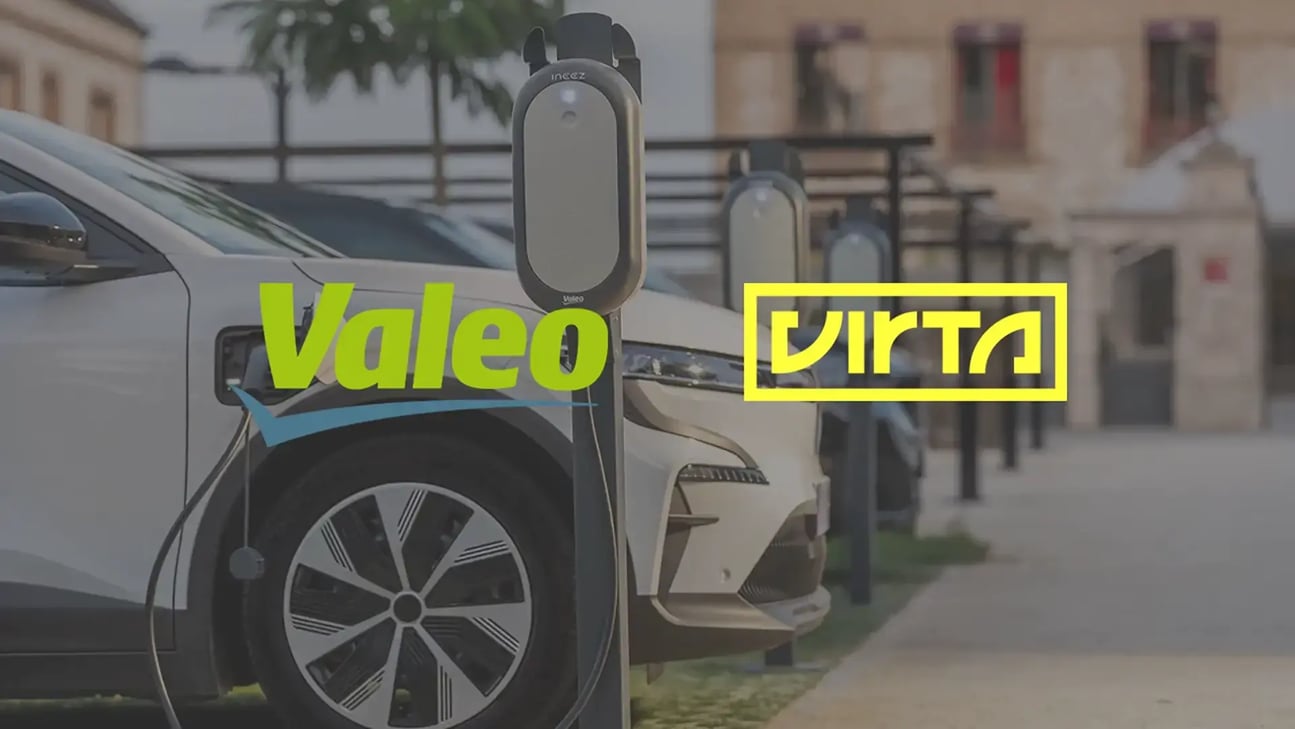Virta Joins International Energy Agency's (IEA) Task 53 to accelerate Interoperability of Bidirectional Charging
Virta, a global Electric Vehicle (EV) charging platform company with pioneering experience in Vehicle-to-Grid (V2G) charging and connecting EVs into energy flexibility markets, is proud to announce its participation in the International Energy Agency's (IEA) Task 53. This initiative, titled "Interoperability of Bidirectional Charging (INBID)," is aimed to advance the interoperability of the V2G ecosystem.
IEA Task 53: Enhancing V2G Ecosystem Interoperability
IEA Task 53 is part of the IEA's Technology Collaboration Programme, focusing on ensuring seamless interoperability between electric vehicles (EVs), charging stations (EVSE), and distribution grids (DSOs) by 2027. This initiative addresses the current lack of standardised protocols and grid codes, which are critical barriers to the widespread adoption and economic viability of bidirectional charging.
By promoting interoperability, Task 53 seeks to enable economies of scale, reduce costs, and foster competition in the bidirectional charging market.
/task-53-workshop.webp?width=1920&height=1080&name=task-53-workshop.webp)
Photo illustrating a Task 53 workshop on bidirectional charging. Photo by Task 53.
Virta contribution to
Task 53
Virta involvement in Task 53 underscores its commitment to integrating electric vehicles into energy markets, enhancing the sustainability of the EV ecosystem, and providing additional revenue streams for Charge Point Operators (CPOs).
"We're thrilled to have Virta onboard as a Task 53 partner. Their expertise in smart charging infrastructure and commitment to innovation are invaluable as we work together to enhance the interoperability of bidirectional charging systems. With companies like Virta on board, we're one step closer to making V2G a global reality." - Marco Piffaretti, Leader of IEA Task 53
As the operator of the world's first public V2G charger and an industry leader in demand response market participation, Virta has consistently collaborated with like-minded advocates of V2G services. Jussi Ahtikari, Virta Chief AI Officer, expressed enthusiasm about the partnership:
"Cooperation with the IEA and other Task 53 members accelerates the integration of electric vehicles and energy systems, offering new benefits to end-users, CPOs, utilities, and DSOs. Virta is proud to become the latest partner of Task 53."
Advancing V2X Charging Solutions
This collaboration not only reinforces Virta's position as a leading V2G service provider but also enhances its research and development capabilities in Vehicle-to-Everything (V2X) themes. By working with Task 53, Virta aims to deliver more robust and interoperable V2X charging solutions, ensuring clients benefit from the latest advancements in bidirectional charging technology.
About Virta
Virta is a global technology company and leader in V2G charging solutions with a mission to drive sustainable transportation and energy by connecting electric vehicles (EVs) with renewable energy systems.
The digital Virta EV Energy platform provides a comprehensive suite of solutions for charging businesses, including Charging Network and Business Management, Transactions, Pricing, Payments and Invoicing, EV Driver and Fleet Services, Roaming, Energy Management, and Virtual Power Plant services.
Virta holds 40 patent families focused on energy management capabilities, including Vehicle-to-Grid (V2G) technology, which are essential for the future ecosystem of connected energy and mobility.
The Virta platform is utilised by professional charge point operators (CPOs) and e-mobility service providers (EMPs) across energy, petrol, retail, automotive and real estate industries in 36 countries in Europe and South-East Asia. Virta is headquartered in Helsinki, Finland.
For more information
Esa-Pekka Nykänen
Director, Communications
esa-pekka.nykanen@virta.global
+358 40 595 3135
About IEA
The International Energy Agency (IEA) is an autonomous intergovernmental organization established in 1974. It was created in response to the 1973 oil crisis to help countries coordinate a collective response to major disruptions in oil supply. The IEA's mission has since expanded to include a wide range of energy-related topics, including: Energy Security, Economic Development, Environmental Awareness and Engagement Worldwide.
The IEA provides data, analysis, and policy recommendations to its member countries and the broader international community. It also publishes reports on various aspects of energy, including the annual "World Energy Outlook."
The agency is headquartered in Paris, France, and consists of member countries primarily from the OECD (Organisation for Economic Co-operation and Development).
New content alerts
You may also like
These related stories
/woman-in-a-green-sweater-charging-a-white-car-in-the-street.webp?width=1120&height=630&name=woman-in-a-green-sweater-charging-a-white-car-in-the-street.webp)
Virta enables Nissan V2G integration with E.ON

Valeo and Virta partner for integrated charging solution
/hand-holding-phone-virta-origin-notification.webp?width=1920&height=1080&name=hand-holding-phone-virta-origin-notification.webp)
Introducing Virta Origin: one more step towards full decarbonisation
/Autoliitto/woman-holding-smartphone-virta-mobile-app-logo.webp?width=1920&height=1080&name=woman-holding-smartphone-virta-mobile-app-logo.webp)